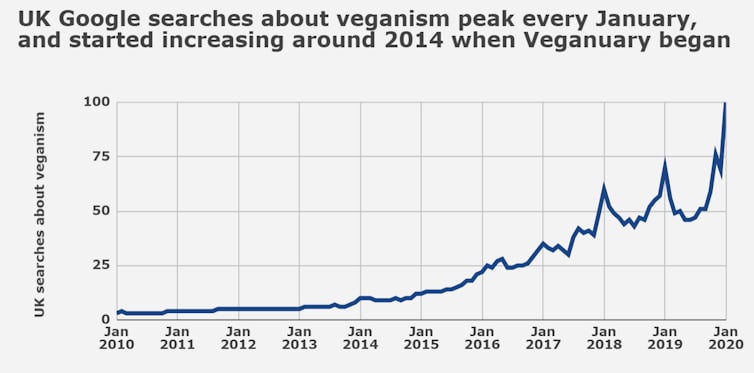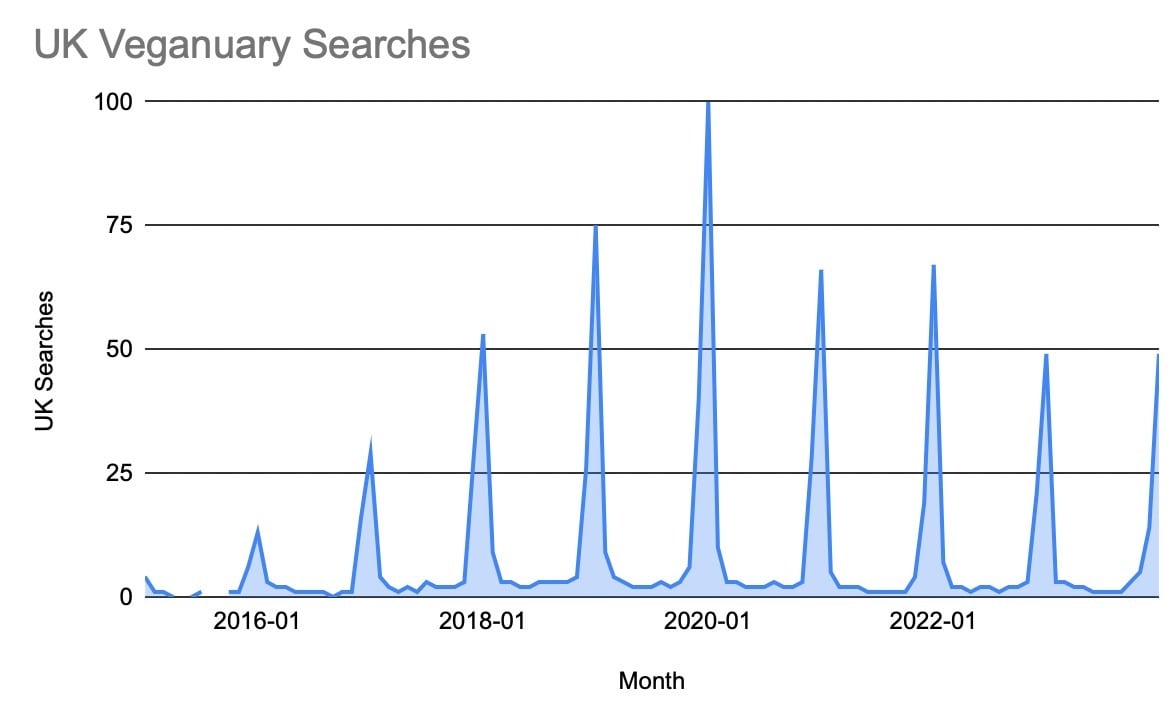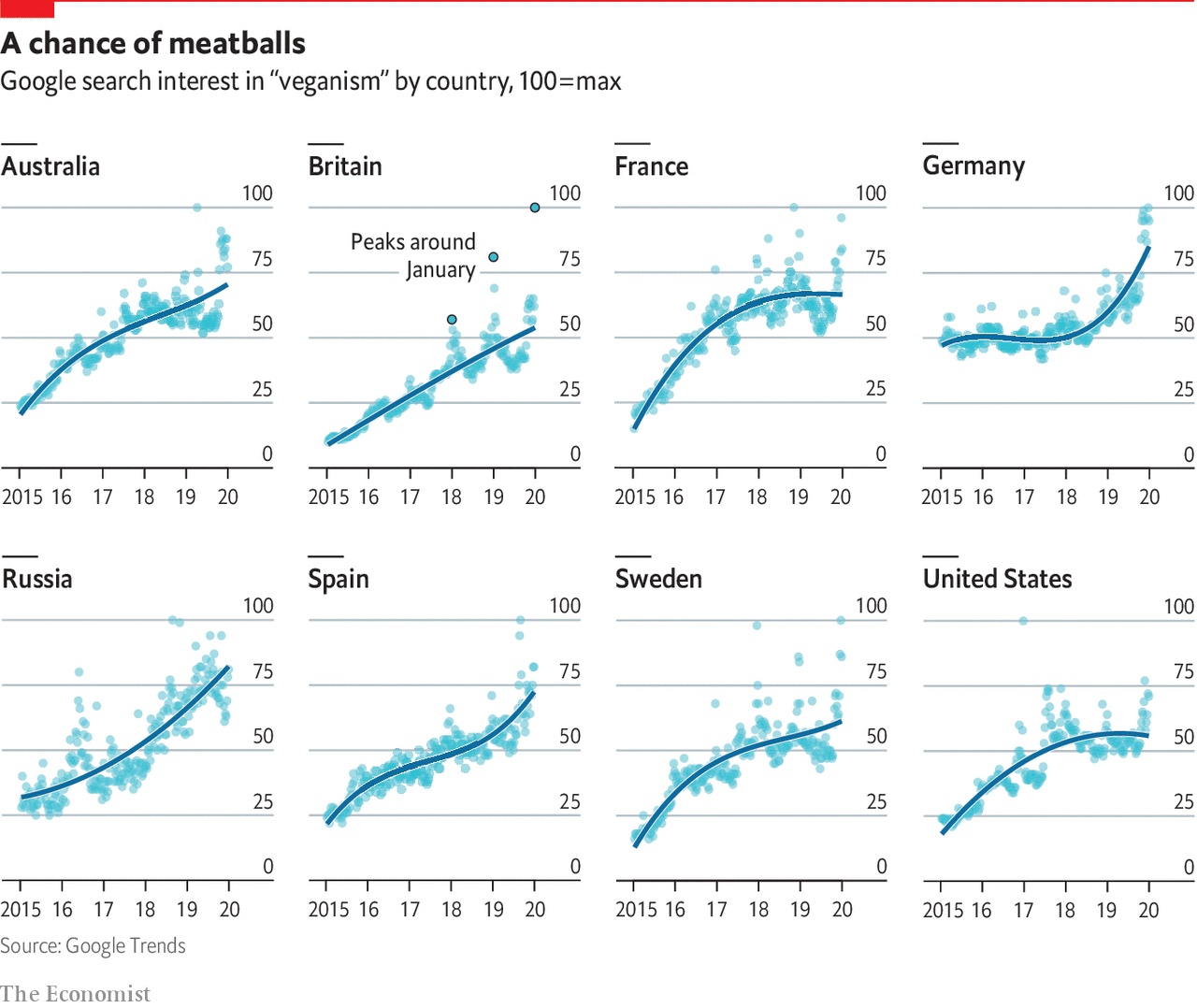For people short on time (like me), I’ll point out this article brief, highly skimmable, and full of self-explanatory graphs. It also briefly explains reasons the researchers think Veganuary succeeds where similar efforts have failed (i.e., the time of year and social experience).
At first glance, the evidence presented here seems quite impressive for near-term reductions in animal product consumption. However, it may not be as impactful as it initially seems (see the comments on this post).
To the extent that it is effective, I’m unsure whether it indicates significant moral circle expansion because many participants may already include farmed animals in their moral circle, meaning they aren’t expanding their moral circle, but instead accepting the implications of their moral circle (which may be a distinction without a difference, as both produce equally-good long-term consequences).




There's this in the abstract:
"Average weekly unit sales of plant-based products increased significantly (57 %) during the intervention period (incidence rate ratio (IRR) 1·52 (95 % CI1·51, 1·55)). Plant-based product sales decreased post-intervention but remained 15 % higher than pre-intervention (IRR 1·13 (95 % CI 1·12, 1·14)). There was no significant change in meat sales according to time period. The increase in plant-based product sales was greatest at superstores (58 %), especially those located in below average affluence areas (64 %)."